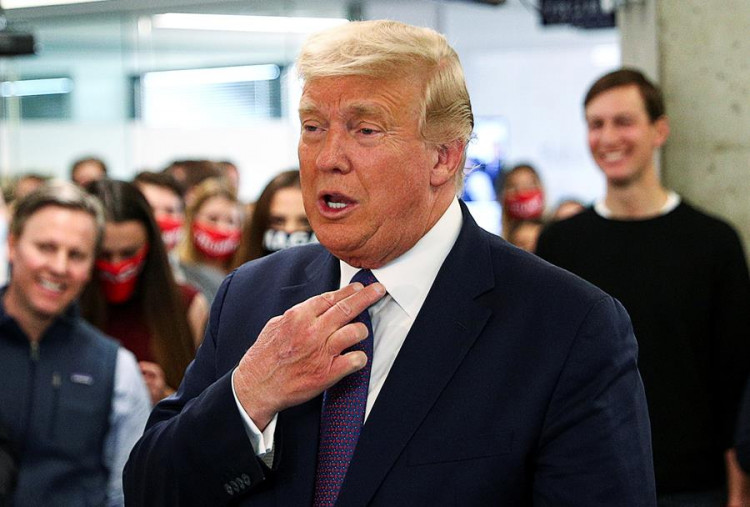Trump Media & Technology Group has shown a notable recovery after a prolonged slump that saw its stock price nearly halved. The company's shares, trading under the ticker DJT on the Nasdaq, surged by over 21% on Monday, closing at $33.52. This recovery comes after a period of volatility spurred by the former president's legal troubles and the potential dilution of shares due to early investors exercising warrants.
Last week, shares of Trump Media plummeted on news that early investors might sell millions of shares. This development, coupled with Donald Trump's guilty verdict on 34 felony counts in his hush money trial, added to the uncertainty surrounding the stock. The decline highlighted the intrinsic connection between the company's fortunes and Trump's personal and political circumstances.
Trump Media had warned that the sale of these shares could significantly impact the stock's trading price. Despite this, the company framed the potential conversion of warrants into shares as a positive move, suggesting it could bring in an additional $247 million in cash. On Friday, Trump Media announced it expected to receive nearly $70 million from the recent exercise of these warrants.
Warrants allow investors to exchange their holdings for shares, which can dilute the value of the stock. However, this influx of capital was seen as a necessary boost for Trump Media, which has faced challenges in competing with social media giants like Facebook, TikTok, and YouTube. The company reported a first-quarter net loss of $327.6 million against less than $1 million in revenue.
The stock's volatility is partially attributed to these financial struggles. Trump Media CEO Devin Nunes has blamed "naked" short selling-a form of short selling where the seller does not borrow the shares first-for the stock's erratic performance. Nunes has written to Congress and other regulators requesting an investigation into these practices.
Short selling, particularly the illegal "naked" short selling, can heavily influence a stock's price. Traditional short sellers borrow shares and sell them, hoping to buy them back at a lower price. "Naked" short sellers, however, do not borrow the shares before selling, betting on the stock's decline without the shares in hand.
Despite these challenges, Trump Media's recent rally indicates a potential turnaround. The company's stock, which had fallen to a low of $22.55 and risen to a high of $79.38 since going public, continues to experience dramatic swings. This volatility is expected given Trump Media's reliance on the former president's influence and the broader market dynamics.
Trump Media's connection to Donald Trump is a double-edged sword. While the former president's notoriety brings visibility to the company, it also ties its fortunes closely to his personal and political trials. Trump's guilty verdict and subsequent stock plunge are stark reminders of this dependency. Nonetheless, the recent uptick in share price suggests investors still see potential in the company.
Moreover, Trump Media's ability to generate substantial revenue remains in question. Competing against established social media platforms, the company has struggled to attract significant advertising dollars and user engagement. Trump's decision to join TikTok, a competitor, underscores the challenges Truth Social faces in capturing and maintaining a loyal user base.
Despite these hurdles, Trump Media's market capitalization stands at nearly $6 billion. The company's future performance will likely hinge on its ability to expand its product offerings and stabilize its financial health. The upcoming expiration of Trump's post-merger lock-up period in September will be a critical juncture, potentially impacting the stock's stability.





